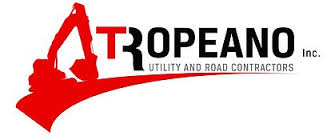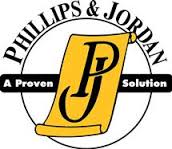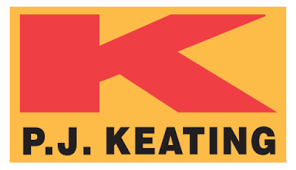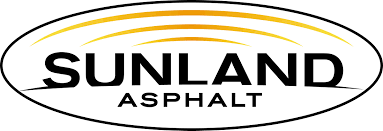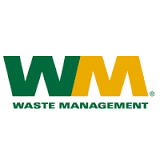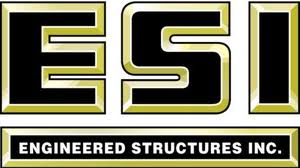News
EPA awards small businesses in Colorado and Utah with funding to develop innovative environmental technologies
Mar 18, 2020
DENVER (March 18,2020) — Today, the U.S. Environmental Protection Agency (EPA) announced $100,000 in funding each to small businesses in Colorado and Utah – AquaRealTime, Inc., in Boulder, Colo.; Syntrotek Corporation in Boulder, Colo.; Skyhaven Systems, LLC, in Steamboat Springs, Colo. and Espira, Inc. in Salt Lake City, Utah-- to develop environmental technologies that will advance the protection of water and air quality. These funds are part of $2.3 million in funding for 23 contracts with small businesses through the agency’s Small Business Innovation Research (SBIR) program to develop technologies that will help protect human health and the environment. This year’s funded technologies are focused on clean and safe water, air quality monitoring, land revitalization, homeland security, sustainable materials management, and safer chemicals.
“EPA’s Small Business funding supports our economy and opens doors to further environmental protection by fostering and encouraging small businesses to bring groundbreaking technologies to market,” said EPA Administrator Andrew Wheeler. “With EPA funding, these entrepreneurs will be able to develop their ideas to address priority EPA issues ranging from cleaning up PFAS contamination to reducing food waste.”
These small businesses are receiving Phase I funding of up to $100,000 from EPA’s SBIR program, which awards contracts annually through a two-phase competition. After receiving a Phase I award, companies are eligible to compete for a Phase II award of up to $400,000 to further develop and commercialize the technology.
Region 8 SBIR Phase I recipients include:
- AquaRealTime, Inc., Boulder, Colo., to use low-cost networked sensors and machine learning for early detection and prediction of harmful algal blooms.
- Syntrotek Corporation, Boulder, Colo., to create low-cost sensors for real-time, on-line and maintenance-free use in water distribution systems.
- Skyhaven Systems LLC, Steamboat Springs, Colo., to create a less toxic product that removes paint and coatings using ozonated foam.
- Espira, Inc., Salt Lake City, Utah, to create a point-of-use system for drinking water disinfection and bacteria monitoring.
Additional SBIR Phase I recipients across the U.S. include:
- Aerodyne Research, Inc., Billerica, Mass., to develop an ethylene oxide monitor with an ultra-low limit of detection.
- AirLift Environmental LLC, Lincoln, Neb., to develop a remedial treatment to remove PFAS and associated co-contaminants from soil and groundwater.
- Capro-X Inc., Ithaca, N.Y., to develop a fermentation process to upgrade processing waste streams from yogurt production into biochemicals.
- Catapower, Inc., Marina Del Ray, Calif., to convert vegetable oil waste to valuable commodities such as antimicrobial agents and ingredients for biofuels and personal care products.
- Creare LLC, Hanover, N.H., to develop a hydrodynamic cavitation technology to destroy PFAS in drinking water.
- CTI and Associates, Inc., Novi, Mich., to test and evaluate a novel technology for the concentration and destruction of PFAS in landfill leachate.
- Hedin Environmental, Pittsburgh, Pa., to create a treatment process for contaminated waters at coal and metal mines.
- Instrumental Polymer Technologies, LLC, Westlake Village, Calif., to develop a recyclable polymer concrete using biodegradable materials.
- Lucendi, Inc., Los Angeles, Calif., to create a cost-effective, portable and automated technology to identify microplastics.
- Mesa Photonics, LLC, Santa Fe, N.M., to create a compact, fast, sensitive and selective optical sulfur dioxide monitor.
- NanoAffix Science LLC, Wauwatosa, Pa., to design an affordable handheld tester for real-time, onsite detection of sulfur dioxide in air.
- Onvector LLC, King of Prussia, Pa., to develop a technology that destroys PFAS in water and wastewater utilizing a plasma arc reactor.
- Opticslah, LLC, Albuquerque, N.M., to rapidly measure the shape and size of microplastics using a portable sensor; and a second contract to develop continuous sensors for monitoring air in food storage to prevent food waste.
- Physical Optics Corporation, Torrance, Calif., to create a 3D mapping and visual system to detect radiation contamination for homeland security applications.
- RemWell, LLC, Potsdam, N.Y., to design a remediation technology using sonolysis for PFAS contaminated groundwater.
- Scientific Methods, Inc., Granger, Ind., to design an inexpensive field-ready kit for detecting antibiotic-resistant bacteria in wastewater.
- Triangle Environmental Health Initiative, Durham, N.C., to develop a technology to remove and recover nutrients from decentralized wastewater systems.
- Xergy Inc., Harrington, Del., to design a low-cost system for food preservation.
EPA is one of 11 federal agencies that participate in the SBIR program, enacted in 1982 to strengthen the role of small businesses in federal research and development, create jobs, and promote U.S. technical innovation. To be eligible, a company must be an organized, for-profit U.S. business and have fewer than 500 employees.
For more information on EPA’s SBIR Phase I recipients, visit: https://cfpub.epa.gov/ncer_abstracts/index.cfm/fuseaction/recipients.display/rfa_id/661/records_per_page/ALL
Learn more about EPA’s SBIR program: https://www.epa.gov/sbir
Learn more about the Federal SBIR Program: www.SBIR.gov
Highly Recommend for the Advanced or a Beginner







